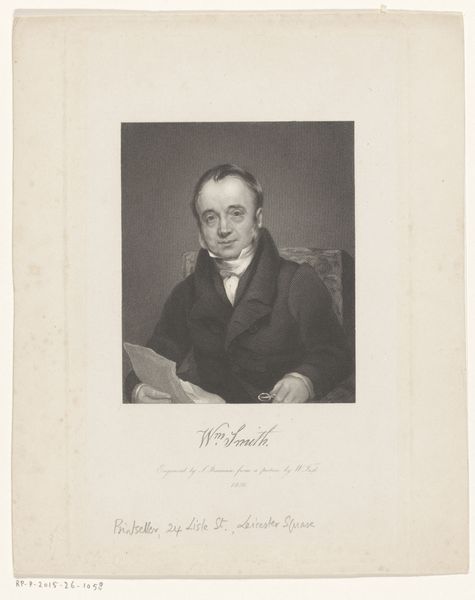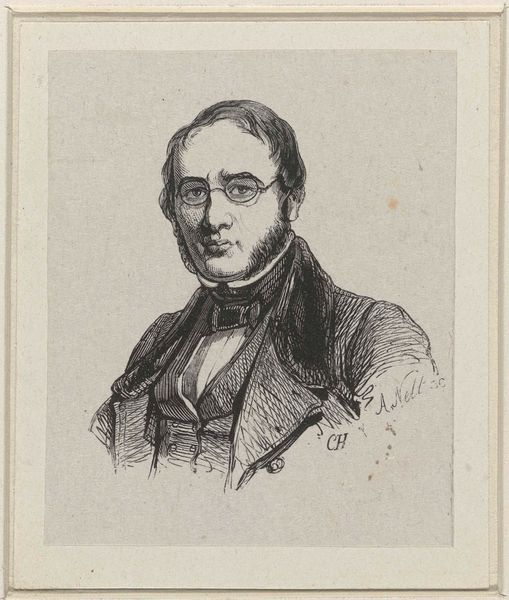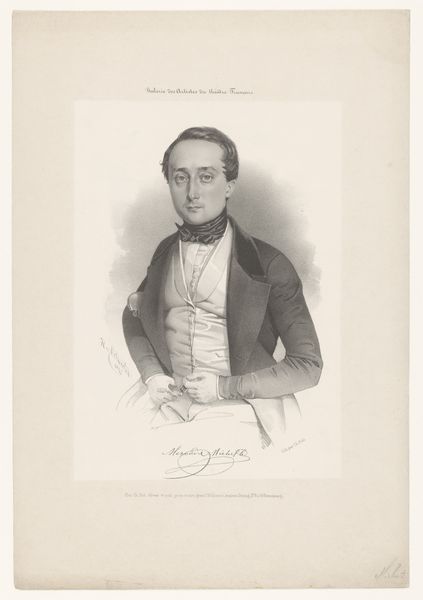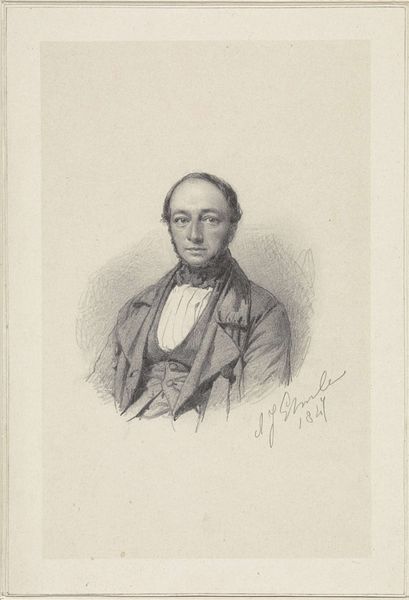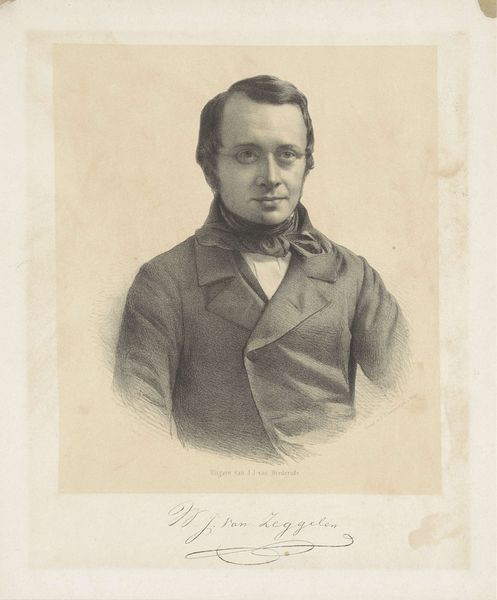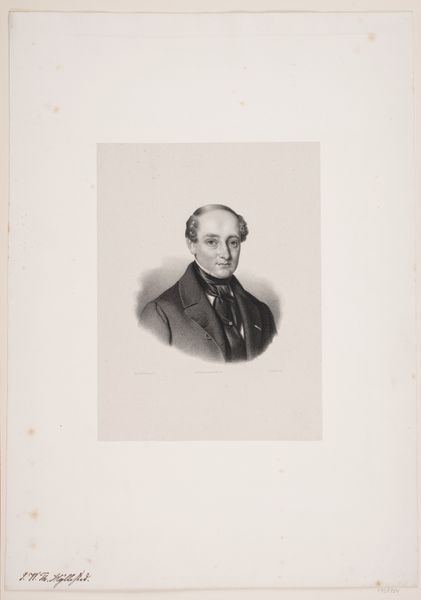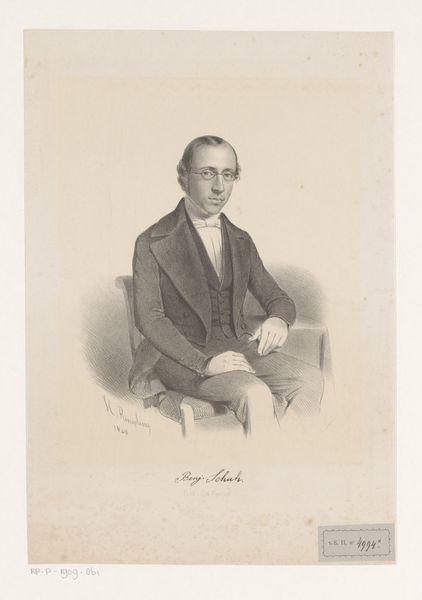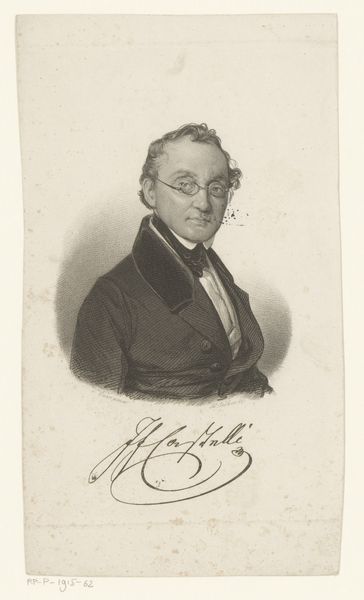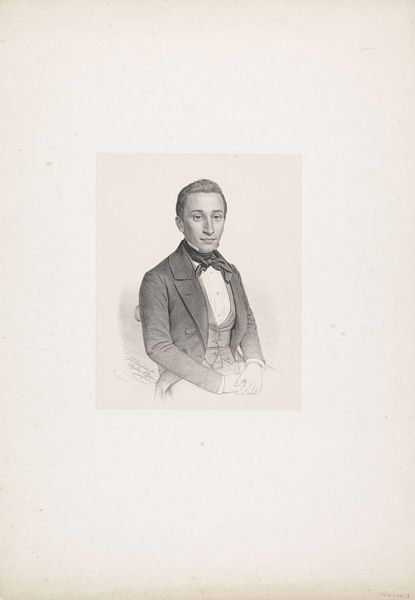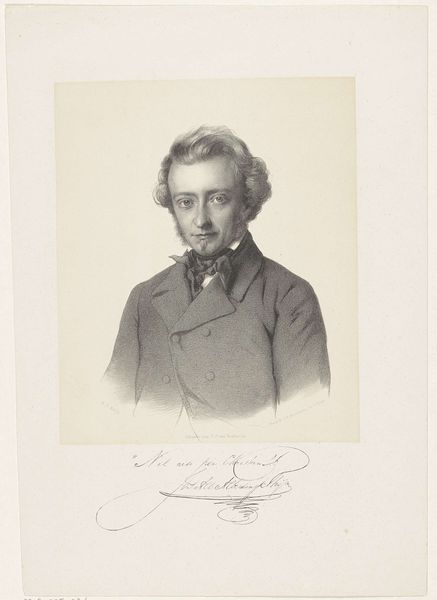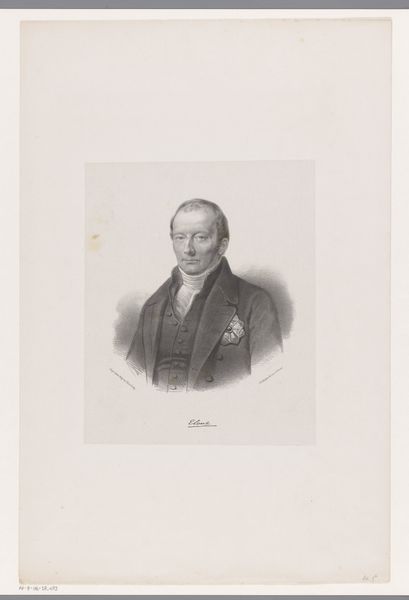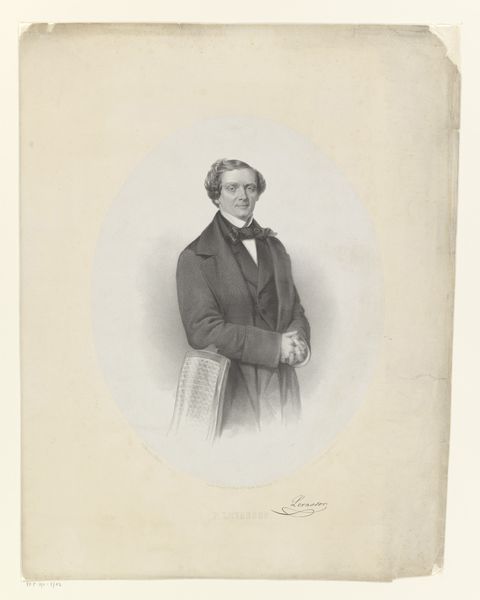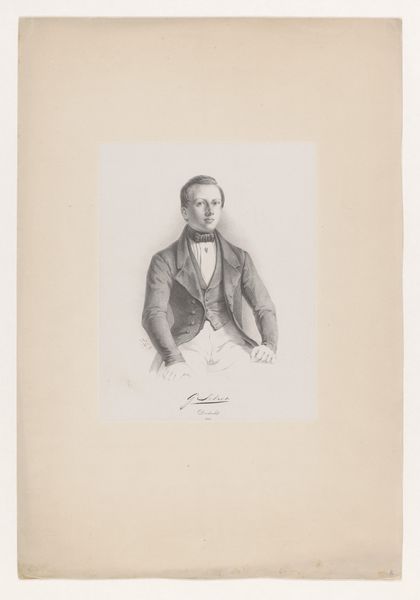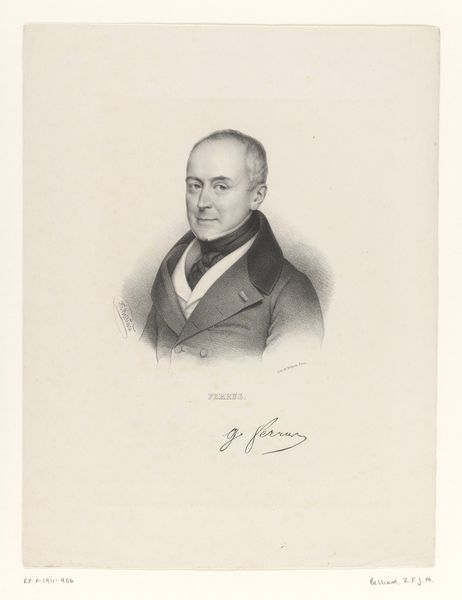
drawing, print, pencil
#
portrait
#
pencil drawn
#
drawing
# print
#
pencil sketch
#
pencil drawing
#
pencil
#
academic-art
Dimensions: height 364 mm, width 275 mm
Copyright: Rijks Museum: Open Domain
Editor: Here we have a pencil drawing titled "Portret van Joannes Josephus Viotta," made sometime between 1847 and 1887 by Adrianus Johannes Ehnle. It's a striking portrait, quite serious and composed. What's your take on it? Curator: This piece offers an interesting insight into the representation of masculinity during that era. Viotta, with his serious demeanor, spectacles, and formal attire, embodies the ideals of the educated, intellectual man. Think about the social expectations placed upon men, especially within academic and professional circles. How does this image reinforce or challenge those expectations? Editor: It definitely feels like it reinforces them. The precision of the drawing, the calculated pose…it all speaks to control and authority. Do you think there’s anything subversive here, though? Curator: Subversion can be subtle. Consider the role of portraiture itself. It's inherently an act of power—who gets immortalized, and how? Ehnle’s work gives us a glimpse into the construction of identity, but also asks who gets to participate. Who was excluded from this kind of representation and why? Where are the portraits of working-class individuals, or people of color, from this period? Editor: That's a great point. By looking at who *isn't* represented, we get a much fuller picture of the social dynamics at play. I hadn't considered the implications of that. Curator: Exactly. We can think about how artists today are reclaiming portraiture to challenge these historical power dynamics and to create space for marginalized voices. This old image encourages to push toward greater inclusivity. Editor: I appreciate how you linked it to contemporary issues. Now, I can definitely appreciate it more in that sense.
Comments
No comments
Be the first to comment and join the conversation on the ultimate creative platform.
